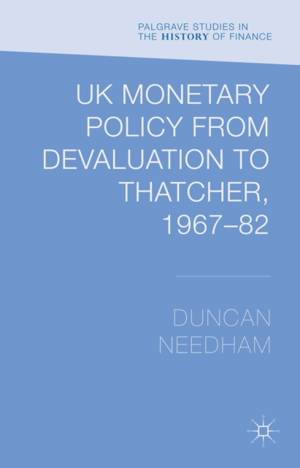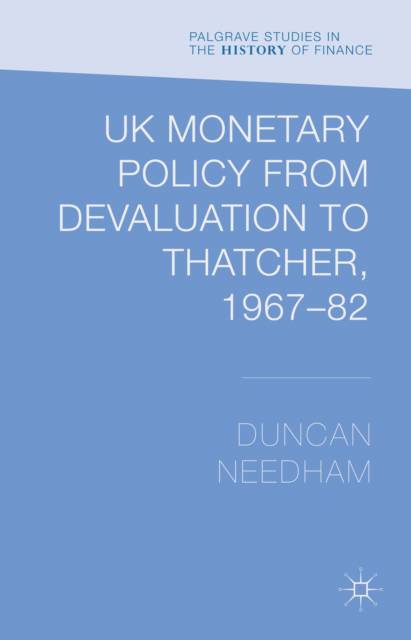
Bedankt voor het vertrouwen het afgelopen jaar! Om jou te bedanken bieden we GRATIS verzending (in België) aan op alles gedurende de hele maand januari.
- Afhalen na 1 uur in een winkel met voorraad
- In januari gratis thuislevering in België
- Ruim aanbod met 7 miljoen producten
Bedankt voor het vertrouwen het afgelopen jaar! Om jou te bedanken bieden we GRATIS verzending (in België) aan op alles gedurende de hele maand januari.
- Afhalen na 1 uur in een winkel met voorraad
- In januari gratis thuislevering in België
- Ruim aanbod met 7 miljoen producten
Zoeken
UK Monetary Policy from Devaluation to Thatcher, 1967-82
Duncan Needham
€ 167,95
+ 335 punten
Uitvoering
Omschrijving
This book charts the course of monetary policy in the UK from 1967 to 1982. It shows how events such as the 1967 devaluation, the collapse of Bretton Woods, the stagflation of the 1970s, and the IMF loan of 1976 all shaped policy. It shows that the 'monetarist' experiment of the 1980s was based on a fundamental misreading of 1970s monetary policy.
Specificaties
Betrokkenen
- Auteur(s):
- Uitgeverij:
Inhoud
- Aantal bladzijden:
- 253
- Taal:
- Engels
- Reeks:
Eigenschappen
- Productcode (EAN):
- 9781137369536
- Verschijningsdatum:
- 13/05/2014
- Uitvoering:
- Hardcover
- Formaat:
- Ongenaaid / garenloos gebonden
- Afmetingen:
- 145 mm x 218 mm
- Gewicht:
- 453 g

Alleen bij Standaard Boekhandel
+ 335 punten op je klantenkaart van Standaard Boekhandel
Beoordelingen
We publiceren alleen reviews die voldoen aan de voorwaarden voor reviews. Bekijk onze voorwaarden voor reviews.









